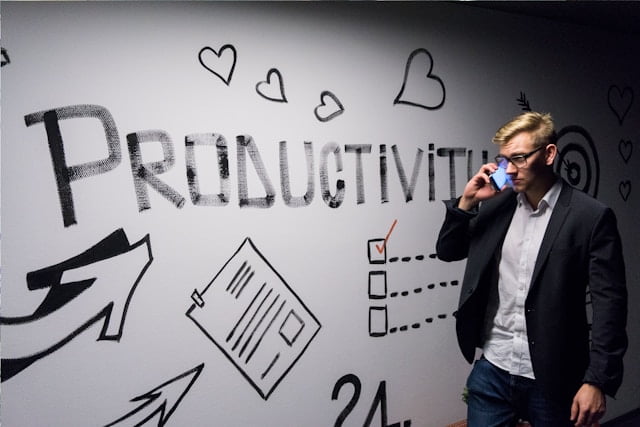Flow is the term used by psychologist Mihaly Csikszentmihaly to describe moments of heightened focus and immersion in activities that are both challenging and rewarding. It’s those moments of deep focus, where you’re lost from the world and time flies past as you’re absorbed in what you’re doing. Summary by The World of Work Project
Flow
Flow is the term used to describe those moments when we are lost and absorbed in what we do. It’s those moments when the chatter of the brain is quieted and our attention is free to be applied fully and peacefully on what we are doing. It’s those moments when we can sink deeply into what we are doing and find ourselves free of distraction, fully present in what we are doing. It’s those moments when our thoughts and actions flow instinctively, unencumbered by an over-active mind.
Flow is described by the leading thinking in the field, Mihaly Csikszentmihalyi, as:
“being completely involved in an activity for its own sake. The ego falls away. Time flies. Every action, movement, and thought follows inevitably from the previous one, like playing jazz. Your whole being is involved, and you’re using your skills to the utmost.”
Characteristics of Flow
Most people we speak to tend to recognise the concept of flow and know when they have it. It’s still helpful, though, to have an understanding of the characteristics of flow. Csikszentmihalyi outlines several characteristics that define the flow experience:
- Complete concentration on the task: Individuals experience intense and focused concentration. They are fully absorbed in the moment and present with what they are doing.
- Clarity of goals, reward and feedback: Individuals may experience flow more when they have clarity on what they are trying to do, some reward associated with success and regular (or real time) feedback on their performance.
- Transformation of time: Individuals experience distortions in time, typically reporting time to have flow. When in a state of flow it is possible to be deeply absorbed for what feels like minutes, only to look at your clock again and realise hours have passed.
- The experience is intrinsically rewarding: Individuals experience a great sense of reward, feeling that the process they are involved in is rewarding in itself, almost regardless of the outcomes.
- Effortlessness and ease: There is a sense that everything just sort of makes sense. One thing follows from the next. The thinking brain doesn’t get in the way of the instinctive understanding of what is best for that moment, resulting in a sense of effortlessness.
- There is a balance between challenge and skills: Whatever is being done is doable, but it is stretching enough to be absorbing and all encompassing. An individual is operating at the boundaries of their capabilities, using their strengths well.
- Actions and awareness are merged, ego is suspended and and there is a loss of self-conscious rumination: Individuals experience a merging of their actions and their awareness. They feel merged with the activity they are doing, they are no longer separated from it. They are the activity, free from distracting thought for the moment in time they are in flow.
- There is a feeling of control over the task: Individuals feel a strong sense of control over what they are involved in and the task while they are in flow.
Benefits of Flow
Engaging in flow activities has profound benefits in both work and in in our personal lives.
When we experience flow it leads to an increase in creativity and productivity, and it improves our ability to learn. People who frequently experience flow in their work usually enjoy their jobs more, have higher levels of career and work satisfaction and are more motivated and engaged in what they do.This typically leads to higher levels of performance in their work, as well as better relationships with those around them.
Experiencing flow also improves our mental health and wellbeing. Moments of flow shut off the chatter of our brains, free us from concerns for a small period of time. Flow has been shown to improve mental health, reduce stress and anxiety and reduce the likelihood of burnout. The increased levels of job satisfaction and performance associated with flow can also improve our confidence, self-esteem and positivity.
Finding Flow
So this all begs the question, how can we find more flow in our lives?
Well, it seems that it’s not all that easy to intentionally create flow, but there are things we can do to improve our own chances of experiencing it.
To experience flow, it’s helpful to:
- Reduce distractions so that you have the opportunity to slip into deep work on a task without being forced / tempted to task-switch.
- Do work or tasks that are at the right level of difficulty. They need to stretch and challenge you, but still be achievable. Tasks that fully use your strengths and skills are great for this.
- Consider goals. Some people think that having clear goals and feedback matters for flow, though some think this is less important.
- Try and find things that you enjoy doing for the sake of doing them. The more you enjoy something, the easier it may be to get lost in it.
- Practice mindfulness and meditation. Developing the skills of managing your thoughts and feelings can help you free yourself from self-generated distraction and enter into flow.
What about for Leaders and Managers?
There are clearly lots of benefits for a team or organization when individuals are able to experience flow on a regular basis.
There are several things you can do to increase the likelihood of people in your team experiencing flow. It would be helpful to speak to them about flow as a starting point, helping them know what to look for and what might help them experience. These conversations typically involve increasing self-awareness, exploring personal values, helping people explore their strengths and helping people develop their emotional and intelligence.
There are also more structural types of things you can do to help increase the likelihood of people experiencing flow. Routines and practices can help with this. For example, blocking “meeting free” time in people’s calendars can create large enough windows for them to really experience deep work. Similarly, agreeing that instant messaging notifications can be turned off can also help.
As noted earlier, goals and feedback can be a contributing factor to flow as well. As a leader or manager, being clear on what needs to be done and why, and providing regular feedback, setting a clear vision and speaking about why the work matters can also contribute to flow.
Learning More
There are lots of things you can explore in this area. Temporal hypo-frontality is an interesting concept associated with flow, and you might enjoy learning about meditation which is also linked to the topic, given that flow is like a state of mindfulness.
Eudaimonia is a sense of fulfilment that is associated with flow and worth learning more about, as are the concepts of meta-emotion and meta-cognition which may affect our ability to experience flow.
The PERMA model of wellbeing calls out the benefits of “engagement”, which is basically flow, so might be worth considering. And it might be worth looking into Maslow’s hierarchy of needs as flow may be connected with self-actualization, though we’ve not written about this year.
You can listen to our podcast on flow below:
The World of Work Project View
We think flow is a fabulous thing to experience and love the evidence linking it to increased wellbeing and performance.
Interestingly, it seems some types of people may find it harder to experience flow than others. For example, some research indicates that individuals with higher levels of conscientiousness are more likely to experience flow and individuals with higher levels of neuroticism are less likely to experience flow. Additionally, individuals who are more drawn to doing things for the sake of the activity than the outcome are more likely to experience flow too.
In our experience, flow can be a tonic for life. It can feel great and bring a sense of peace, mindfulness and contentedness. It’s something we strive to experience in our regular work, and we know we perform better when we have the chance to experience it more regularly.
From both a wellbeing and a performance perspective, we think it is a good thing for leaders and managers to try to help their employees and colleagues experience regularly.
How We Help Organizations
We provide leadership development programmes and consulting services to clients around the world to help them become high performing organizations that are great places to work. We receive great feedback, build meaningful and lasting relationships and provide reduced cost services where price is a barrier.
Learning more about who we are and what we do it easy: To hear from us, please join our mailing list. To ask about how we can help you or your organization, please contact us. To explore topics we care about, listen to our podcast. To attend a free seminar, please check out our eventbrite page.
We’re also considering creating a community for people interested in improving the world of work. If you’d like to be part of it, please contact us.
Sources and Feedback
Csikszentmihalyi, M. (1990). Flow: the psychology of optimal experience. New York, Harper & Row
We’re a small organization who know we make mistakes and want to improve them. Please contact us with any feedback you have on this post. We’ll usually reply within 72 hours.






